FAQs
Is microsuction suitable for everyone?
It can safely be used by most patients. There are very few patients for whom microsuction is not suitable:
patients who have experienced difficulties with the procedure in the past
patients with a history of severe dizziness
patients who have a (major) sensitivity to loud noise (known as hyperacusis)
patients who are unable to hold their heads still, or are prone to unpredictable head movement
I have a perforated ear drum. Can I still have microsuction?
Microsuction is the recommended gold standard for such patients as putting water in a perforated ear is inherently dangerous.
Does microsuction hurt?
No, the process should not cause any pain at all as the structures within the ear canal are not touched. Using high magnification to visualise your ear ensures that only the wax and dead skin cells are targeted. Some patients say it is a bit noisy but as the procedure doesn't take that long it is well tolerated.
Is microsuction suitable for children?
There is no lower age limit for microsuction but I do not see children under the age of 14 years. If you feel your child has any hearing difficulties you should make an appointment with your GP for examination and advice.
What if no wax is found?
If on examination there is NO DEBRIS blocking your ears, there is NO FEE. I will be able to give you advice or recommend that you make an appointment with your GP to discuss your hearing problem further.
I had my ears cleared, but I'm still having trouble with them, what should I do?
I am very sorry to hear that. Please make an appointment to see me as soon as possible and I will see if there is anything I can do. There will be no charge for a follow up appointment within 2 weeks.
I've had ear problems including a perforation and surgery in the past, is microsuction safe for me?
Definitely, microsuction is the safest way to clean your ear because it is performed under direct vision through the microscope, which gives a magnified view of what is going on. The impacted debris is removed from the outside via suction, no pressure is placed on the ear drum and sensitive canal walls. Ear irrigation should be avoided if you have had previous surgery on your ears or had a perforated ear drum. I would be happy to advise you of the best treatment for you.
Do I have to use ear drops before I come to see you?
It helps if you instil some olive oil drops like Earol in your ears for about two or three days before your appointment. This will soften the impacted build up and makes the treatment more comfortable for you. It is not strictly necessary if you need to see me urgently or there is a reason you are unable to use ear drops in your ears. I generally do not recommend sodium bicarbonate or hydrogen peroxide drops, olive oil drops or spray are usually the most helpful.
How long does the suction or irrigation procedure take?
It usually only takes around 30 - 40 minutes or so depending on what I find on examination. Often it takes longer to have a chat and explain the procedure than to actually get you hearing again. Anything you tell me will, of course, be subject to complete confidentiality.
How often should I have it done?
Debris in the ear often re-accumulates and many people like to have their ears cleaned on a regular basis. Some severely affected patients may need their ears cleared as often as every 3 to 4 months. However, once or twice a year is more common while some patients go for several years before requiring another appointment. There is no upper limit to how often the procedure can be performed.
Why do I make so much wax?
People who have narrow ear canals find the debris doesn't work its way out naturally.
Patients with certain scalp and skin conditions like eczema and psoriasis or a lot of hairs in your ear canals.
A build up of debris is more likely to occur in older adults as wax becomes drier as we age, we generally produce more dry skin and men tend to produce more hairs around the opening to their ear canals.
Hearing aids, ear bud headphones and the use of cotton buds stimulate the glands within the ear to produce more wax and excess wax becomes compacted. All of those also, of course, push the build up further down the canal.
There are two genetically determined types of ear wax – either wet (dominant) or dry.





